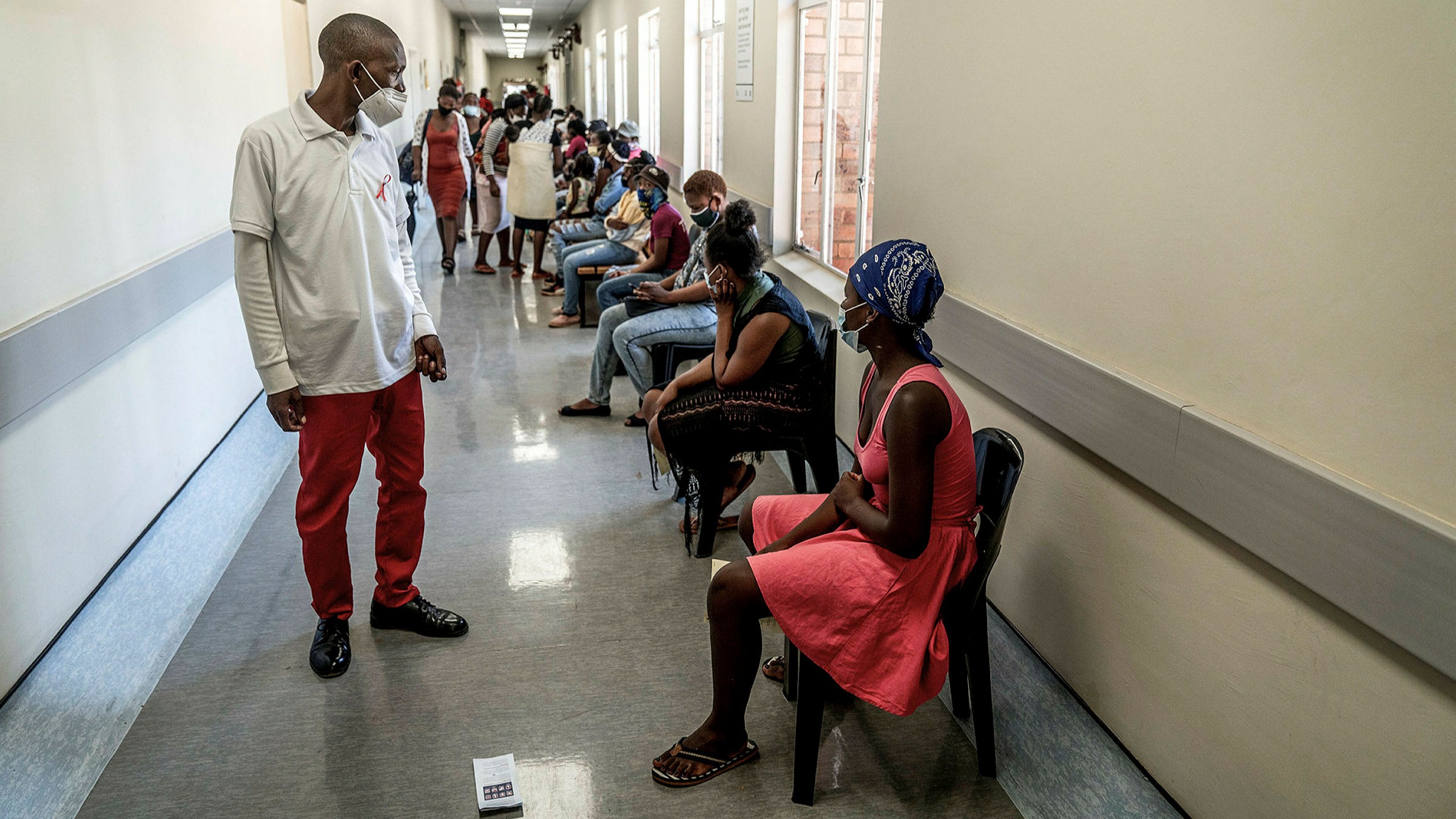COVID-19 Reports
S’African Omicron Hospitalisations Rate Far Lower Than With Previous Variants – scientists remain cautious

-
S’African Omicron hospitalisations rates far lower than with previous variants – but scientists remain cautious
EKO HOT BLOG reports that South Africa delivered some positive news on the omicron coronavirus variant on Friday, reporting a much lower rate of hospital admissions and signs that the wave of infections may be peaking.
Research indicates that despite Omicron’s increased transmissibility, hospitalisations in the country are much lower than with previous variants and vaccine efficacy is still relatively strong.
Read Also: UK Breaks Daily Covid Cases Record 93,045 New Infections 3rd Day Running
However, South Africa’s demographic is different to other countries including the UK – with a younger and less vaccinated population – meaning some of the trends it is seeing may not hold true for the rest of the world.
“We are starting to see some increases [in hospitalisations], but relatively small increases in deaths,” said Michelle Groome of the National Institute of Communicable Diseases (NICD) during a Department of Health press conference on Friday.
“The hospitalisations are not increasing at such a dramatic rate.”
This is corroborated by research from the private sector, with South Africa’s largest private health insurance administrator, Discovery Health, releasing a report earlier in the week examining Omicron data from its membership database, which indicated that hospitalisations were only 1.7 per cent of confirmed Covid-19 cases during this wave – in contrast with 19 per cent during the peak of the Delta variant’s spread.
Increased levels of vaccination are also playing a significant role, with persons who received the double dose of Pfizer-BioNtech retaining 70 per cent protection against hospitalisation with Omicron in comparison to unvaccinated persons.
Some scientists are urging caution, as another factor highlighted as protective against Omicron might simply be South Africa’s high level of previous Covid-19 infections, with recent seroprevalence (the level of a pathogen in a population, as measured in blood serum) studies in the country indicating that 72 per cent of the population having previously been infected with coronavirus.
“That is important to keep at the back of our minds when we see what is unfolding in South Africa and what we might see in other settings, which might have a very different epidemiology,” said Shabir Madhi, vaccinologist at the University of the Witwatersrand in Johannesburg.
Despite early concerns that the higher incidence in Omicron infections in children was due to changes in the variant, health officials now think that this increased incidence amongst the youth is due to a lack of vaccination.
“There are early increases in hospital admissions in younger adults … This is likely due to the low vaccination uptake in this group,” said Dr Keith Cloete, Head of Department of Health in South Africa’s Western Cape Province.
Health officials remain cautiously optimistic, keeping the country on the lowest level of lockdown restrictions for the time being while urging vaccination and compliance to mask mandates.
“To date, vaccines appear to still provide strong protection against severe disease from Omicron and remain our best defence,” said health minister Joe Phaahla.
Advertise or Publish a Story on EkoHot Blog:
Kindly contact us at ekohotblog@gmail.com. Breaking stories should be sent to the above email and substantiated with pictorial evidence.
Citizen journalists will receive a token as data incentive.
Call or Whatsapp: 0803 561 7233, 0703 414 5611


















